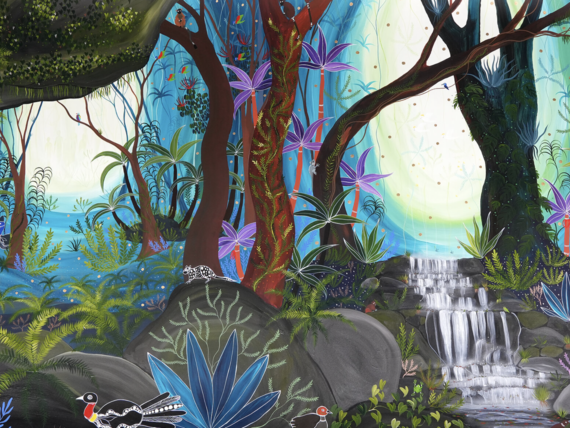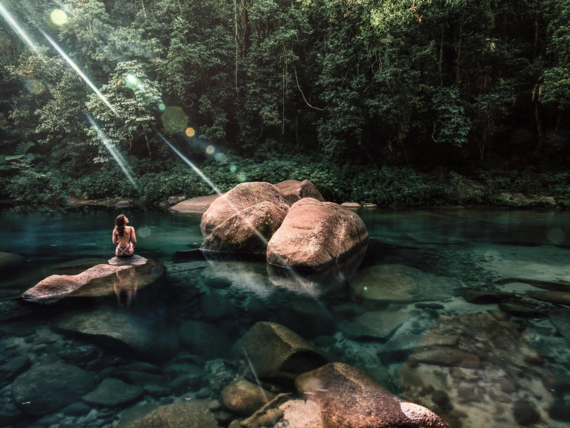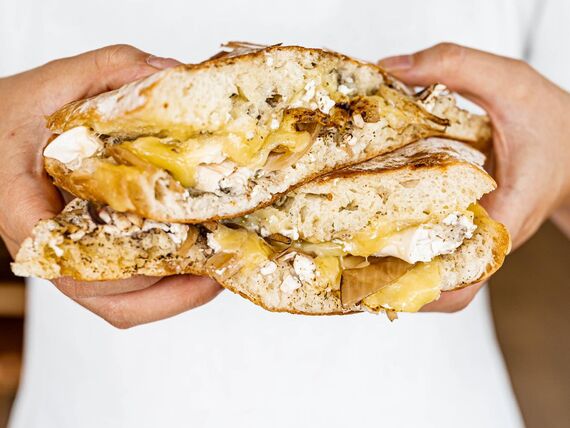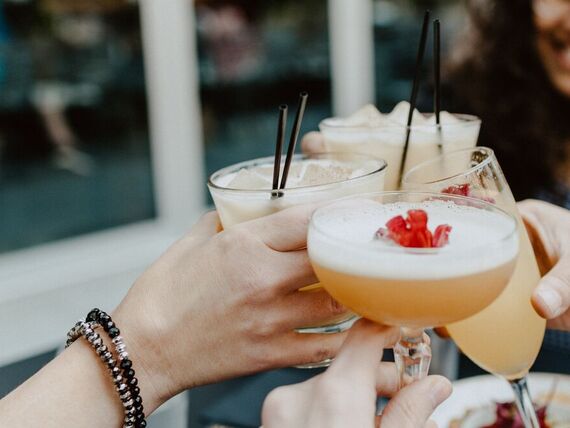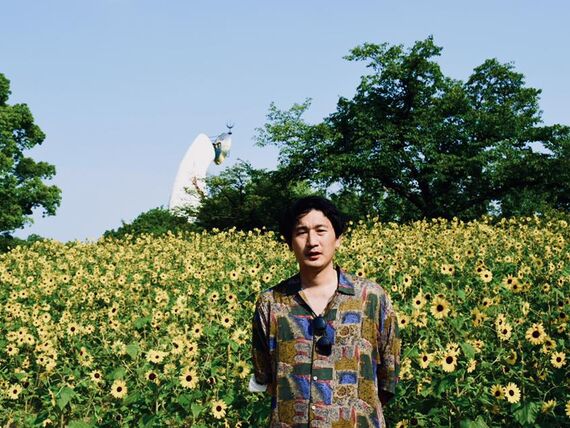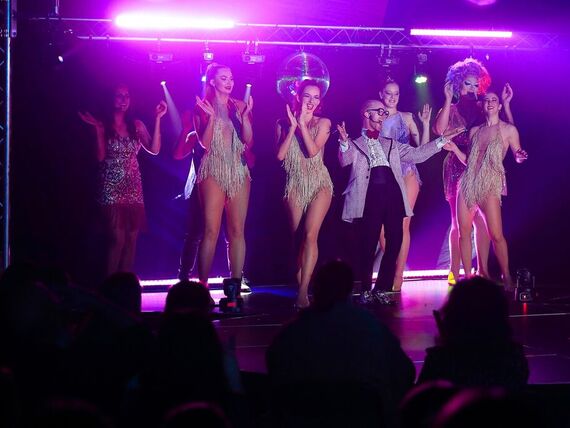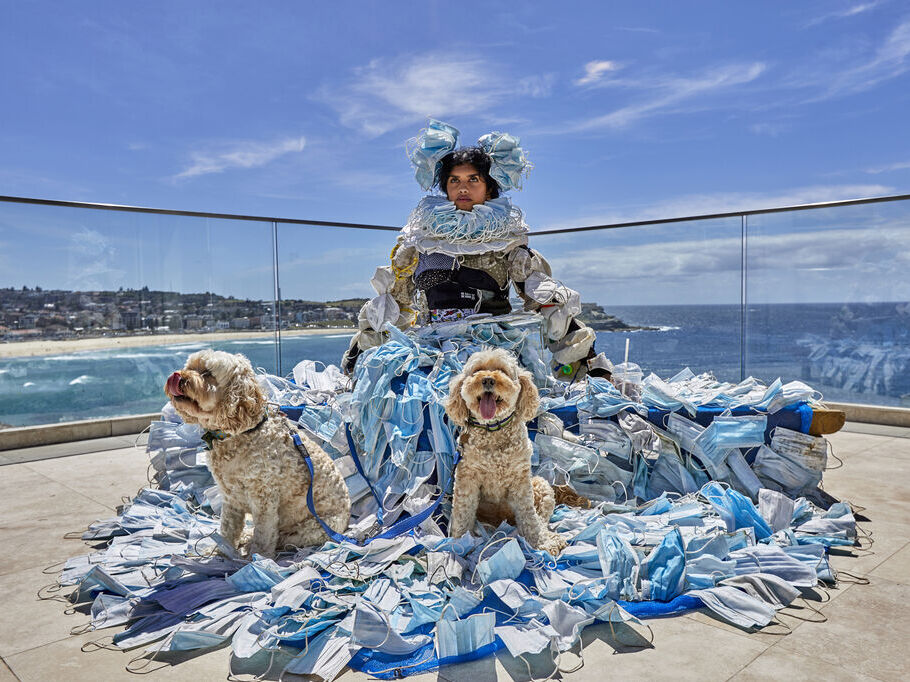
##MP##
Sydney-based ‘artivist’ Marina DeBris hopes the Great Barrier Reef is still a place where humans shouldn’t be.
When she visited Cairns some 30 years ago to dive the Reef, Marina was struck by the pristine condition of the underwater ecosystem.
In the decades since that visit, Marina’s passion for the marine environment has evolved into activism and awareness via her self-described “grotesquely amusing” wearable art pieces.
As suggested by her pseudonym when said aloud (“marine debris”), Marina uses her art to highlight the impact humanity’s reliance on single-use plastic items is having on the world’s beaches and oceans.
##BA##
Marina returned to Cairns on Wednesday (Nov 16) for her second visit, this time accompanying her thought-provoking exhibition Beach Couture: A Haute Mess staged at the Cairns Museum from Saturday (Nov 19) to February 25.
##PQ##
The exhibition features wearable pieces Marina has created using plastic and other waste items she has collected from Sydney’s Coogee Beach and nearby Gordon’s Bay.
Sadly, not all Marina’s ocean experiences share the positive association she has with her previous Cairns visit.
Marina’s artistic journey began in 2009 when, having moved from Bondi Beach to Venice Beach in Los Angeles, she began transforming rubbish she had collected off the beach during her daily runs into art pieces.
“I thought that I must have been living in some weird wonderland at Bondi and could not understand how (the Venice Beach pollution) was OK and normal,” she said.
“So, I started playing around with ideas, not really sure what I was doing. I still don’t know what I’m doing really,” Marina laughed.
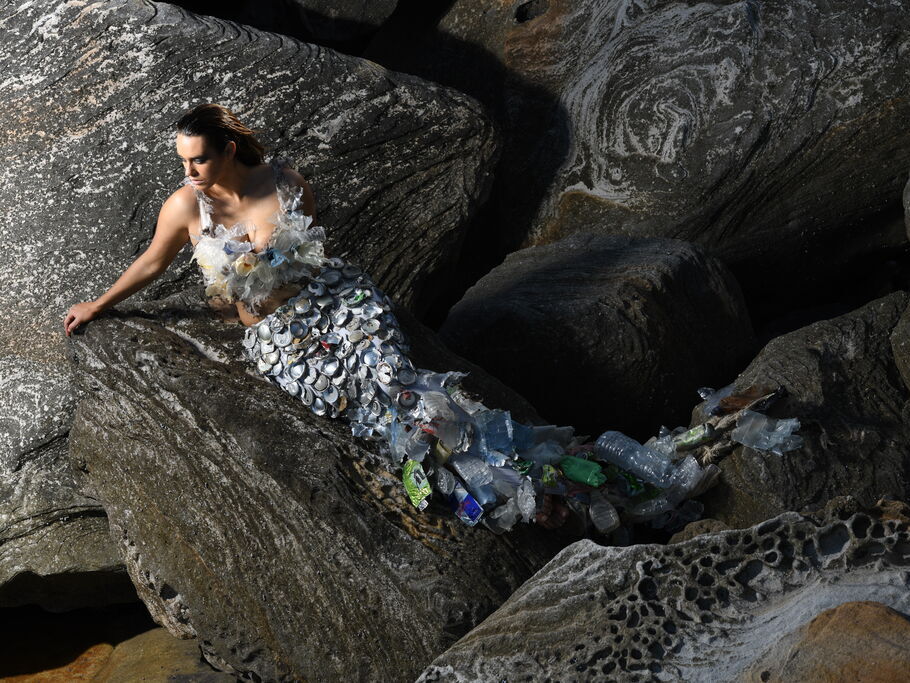
Marina’s artworks, including indoor and outdoor sculptures also created using rubbish washed on to beaches, have had a significant impact on those who have witnessed her works in the United States, Japan, and Australia.
Ironically, if it were not for the abundance of plastic and waste materials washed up on our beaches, Marina’s fabulous designs would not be possible.
It is a sacrifice she would willingly make.
“I would give this up in a heartbeat,” Marina said. “I do it to raise awareness around the issue.
“It’s a burden, in a sense, because every day (the pollution) gets worse. I no longer have room to keep all the materials, that’s how much is washed up on the beaches.”
Marina said her decision to create wearable art pieces for her current exhibition also served as a form of wish fulfilment.
“In a sense, I’m a frustrated fashion designer,” she said. “I have a background in graphic design and, having lived in New York, London, and Sydney, I love being out seeking haute couture – I’m a bit of a wannabe.
“I did want to be a fashion designer when I was younger, but I thought the industry would eat me alive.
“I’m glad I didn’t pursue it. I don’t think I would have survived – it’s very cut-throat.
“This way, I get to be in fashion design but with a totally different entry point. I love doing the live fashion shows.”
Marina’s exhibition will be complemented by a fun, hands-on school holiday program and a free public talk by environmental sociologist and Director of the Cairns Institute, Professor Stewart Lockie, titled Plastic Futures, or a better Anthropocene, to be hosted at 5.30pm on November 25.
Cairns Museum will also host a six-week school holiday program to develop broader discussion about plasticity of the future, from December 13 to January 21.
The program includes workshops such as recycled Christmas decorations, a collaborative bottle cap mural, and the creation of hologram-viewers from used plastic containers.
The workshops are suitable for children aged 4-12 and cost $10 for museum members and $15 for non-members, with a range of free-with-entry activities inspired by Marina’s exhibition to also take place.
For more information phone Cairns Museum on 4051 5582 or email [email protected]
Main points
- Beach Couture: A Haute Mess, an exhibition on display at Cairns Museum Nov 19 - Feb 25.
- Pieces created using plastic and other litter collected from beaches drawing attention to the human waste products in our oceans and on beaches worldwide.
- Cairns Museum will complement the exhibition with a similarly themed school holiday program and free public talk by environmental sociologist Professor Stewart Lockie.


